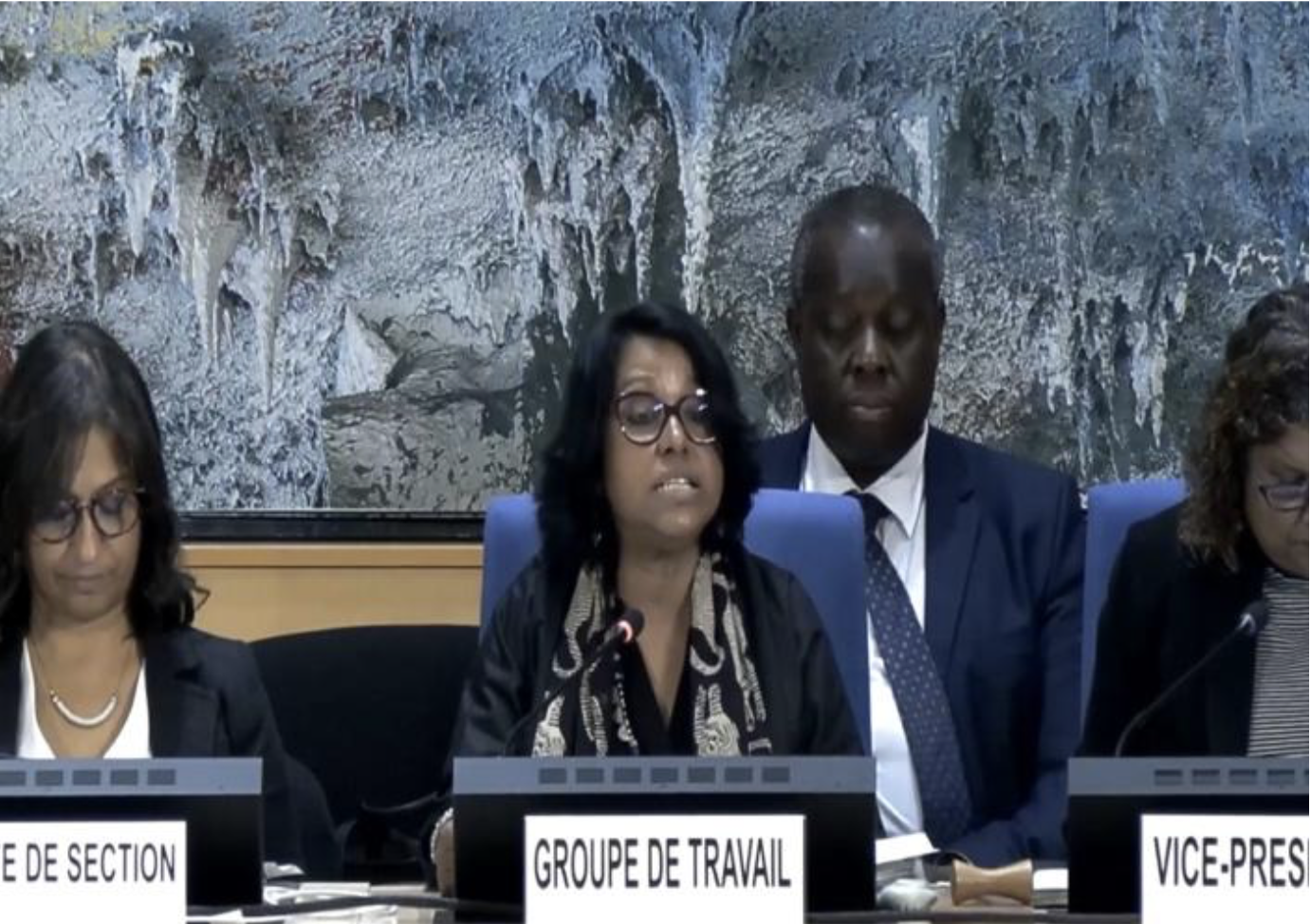
Pathways to Justice: Reparations and the Rights of People of African Descent
The 60th Session of the Human Rights Council
8 September - 8 October 2025
Item 9: Interactive Dialogue with Working Group on People of African Descent
1 October 2025
By Jamel Nampijja / GICJ
Executive Summary
During the 35th meeting of the 60th session of the Human Rights Council on 1 October 2025, Ms Bina D'Costa, Chair of the Working Group on People of African Descent, presented two reports during the Interactive Dialogue with the Working Group.
The report fulfils the Working Group's mandate, established under Human Rights Council resolutions 9/14 and 54/26, to examine racial discrimination against people of African descent and to propose strategies for achieving justice, equality, and redress. These particular reports focused on the political, legal, economic, and cultural aspects of reparatory justice, specifically how the international community can address the historical and ongoing impacts of enslavement, the transatlantic trade in enslaved Africans, and colonialism.
The first report, “Principles, provisions and pathways to reparatory justice for people of African descent - Report of the Permanent Forum on People of African Descent on its fourth session”, outlined principles and operational pathways for addressing the enduring legacies of enslavement, the transatlantic slave trade, colonialism, and systemic racism.
The report emphasised that reparatory measures should include recognition, restitution, compensation, rehabilitation, guarantees of non-repetition, and cultural and historical acknowledgement. It highlighted the importance of tailoring reparatory justice to each country's specific context and ensuring meaningful participation from affected communities, particularly women and youth.
Additionally, the report called for integration of reparatory justice into the Second International Decade for People of African Descent, urging that it be strategic, action-oriented, and adequately resourced.
The second report, titled “Report on the Working Group’s Country Visit to Colombia," examined the structural and systemic challenges faced by Afro-descendant communities in Colombia. Key findings included issues of statistical invisibility, barriers to accessing justice, underrepresentation, disproportionate violence, social and economic exclusion, and marginalisation.
The report emphasised the need for differentiated protection measures, the full implementation of existing laws, accountability for violations, and inclusive policies to uphold the rights of Afro-descendant populations. Additionally, it highlighted the importance of restoring land rights, safeguarding cultural heritage, and promoting participation in national and local decision-making processes.
During the Interactive Dialogue, Member States generally supported the findings and recommendations of both reports. Delegations shared domestic initiatives, including legal recognition of African-descendant populations, affirmative action programs, restitution of lands and cultural heritage, initiatives focused on memory and truth, and institutional reforms to dismantle structural inequalities. Many emphasised the importance of regional cooperation, high-level advocacy, and integrating reparatory justice into international human rights frameworks.
Civil society and human rights organisations emphasised that reparatory justice is a binding obligation, not merely a symbolic gesture. They called for mechanisms that are transparent, participatory, and evidence-based for implementation. Furthermore, they stressed that reparatory justice must address the economic, cultural, and social consequences of historical injustices, with particular attention to gender and youth perspectives.
The Interactive Dialogue concluded by underscoring the need to move from recognition to accountability and implementation, addressing both historical and contemporary forms of racial discrimination. They reaffirmed that reparatory justice is essential for building equitable, inclusive, and just societies for people of African descent globally.
There was also a call to integrate reparatory justice into the Second International Decade for People of African Descent, ensuring that it is action-oriented, strategic, and well-resourced.
Geneva International Centre for Justice (GICJ) welcomed the report of the Working Group. GICJ stresses the importance of establishing transparent, participatory, and evidence-based mechanisms for implementing reparatory justice. This process should be regarded as a moral, legal, and historical imperative, not a symbolic gesture.
Background
The Working Group of Experts on People of African Descent (WGEPAD) was established in 2002 by the Commission on Human Rights through resolution 2002/68 as a Special Procedure. Its creation followed the World Conference against Racism, Racial Discrimination, Xenophobia, and Related Intolerance held in Durban in 2001, which adopted the Durban Declaration and Programme of Action (DDPA). The DDPA specifically requested the Commission on Human Rights to consider establishing a United Nations mechanism to study the challenges faced by people of African descent in the diaspora and to make proposals for eliminating racial discrimination against them.
The Working Group is composed of five independent experts, appointed with equitable geographic representation, for three-year terms, which may be renewed once. In 2008, the Human Rights Council clarified and expanded the Working Group's mandate through resolutions 9/14 and 54/26. This mandate includes:
- Studying the problems of racial discrimination faced by people of African descent worldwide, including information gathering from Governments, civil society, and other relevant sources;
- Proposing measures to ensure full and effective access to justice for people of African descent;
- Making recommendations to eliminate racial profiling;
- Proposing strategies to eliminate racial discrimination globally;
- Addressing all issues concerning the well-being of people of African descent contained in the DDPA;
- Developing short-, medium-, and long-term proposals to eliminate racial discrimination in close collaboration with international, development, and specialised UN agencies.
To fulfil its mandate, the Working Group undertakes a range of activities, including:
- Preparing specific programmes and projects to improve the human rights situation of people of African descent;
- Supporting community-level initiatives and facilitating exchanges of technical know-how;
- Collaborating with financial and development institutions to contribute to programs focused on health, education, housing, access to electricity and water, environmental control, and equal employment opportunities;
- Promoting affirmative and positive measures grounded in human rights principles.
The Working Group meets in two annual sessions, undertakes country visits, responds to communications and allegations concerning its mandate, and reports on its activities to both the Human Rights Council and the United Nations General Assembly. In 2023, the Council renewed the mandate of the Working Group for an additional three years through resolution 54/26, reaffirming the international community's commitment to advancing the rights of people of African descent worldwide.
The mandate of the Working Group has been renewed periodically by the Commission and the Human Rights Council, including through resolutions CHR 2003/30, A/HRC/RES/9/14, A/HRC/RES/18/28, A/HRC/RES/27/25, A/HRC/RES/36/23, A/HRC/RES/45/24, and A/HRC/54/26.
Summary of the Interactive Dialogue
Reports of the Working Group of Experts on People of African Descent

1. A/HRC/60/72: Pathways to Reparatory Justice for People of African Descent
The Chair of the Working Group of Experts on People of African Descent, Ms Bina D'Costa, opened the interactive dialogue by presenting the Working Group’s 2025 thematic report titled “Pathways to Reparatory Justice for People of African Descent”. The report examined the historical and structural legacies of slavery, colonialism, and the transatlantic trade in enslaved Africans, and their ongoing effects on people of African descent worldwide.
The report outlined the Working Group's activities during the reporting period, including its 35th and 36th sessions in New York. During these sessions, consultations were held with experts, civil society organisations, and communities of African descent. Ms D'Costa expressed concern over the persistent funding challenges that have limited the Working Group's ability to fully fulfil its mandate, particularly in conducting technical country visits. Despite these challenges, the Working Group made significant progress on reparatory justice and published two comprehensive reports presented to the Human Rights Council.
The report emphasised that reparatory justice must be viewed as a multidimensional and transformative process rather than a singular act of financial compensation. Ms D'Costa highlighted that the legacies of slavery and colonialism have created structural and systemic inequalities that continue to persist today. These inequalities manifest in poverty, exclusion, limited access to justice, and widespread racial discrimination. Consequently, reparatory justice must address these historical injustices through a range of measures, including compensation, restitution, rehabilitation, and guarantees of non-recurrence.
Furthermore, she stressed that reparatory processes must be gender-sensitive, inclusive, and reflective of the diverse experiences of people of African descent, particularly women, youth, and those living in diaspora communities. Ms D'Costa also pointed out the importance of cultural and symbolic reparations, such as the return of artefacts, the restoration of ancestral lands, and the acknowledgement of the contributions of African descendants to world history and civilisation.
A key component of the report is its analysis of the legal and institutional barriers to achieving reparations. The Working Group challenged the use of inter-temporal law as a justification for denying reparations. They argued that slavery and colonialism constitute crimes against humanity and that no statute of limitations should apply. The report called for recognising reparatory justice as a binding international legal norm, and for establishing a dedicated United Nations mechanism to facilitate and coordinate global reparatory initiatives.
The report also highlighted the case of Haiti as emblematic of the injustices faced by African-descendant nations. Ms D'Costa recalled the indemnity payments imposed on Haiti by France following its independence, which placed a lasting economic burden on the country. She urged the international community to formally recognise this injustice and support the restitution of these payments as part of broader reparatory justice measures. She stated that addressing such historical wrongs is essential to achieving equality, development, and lasting peace.
Furthermore, Ms D'Costa reiterated that reparatory justice should not be viewed as backwards-looking, but as a forward-looking process of transformation and healing. She called upon States to adopt comprehensive reparatory frameworks that include truth-telling, institutional reform, and educational measures to confront the enduring legacies of slavery and colonialism.
Additionally, Ms D'Costa called upon Member States to adopt a comprehensive, rights-based, and forward-looking approach to reparatory justice, grounded in truth, accountability, and transformation. Reparations, she emphasised, are not solely about compensating for past wrongs but about rebuilding societies on the principles of equality, inclusion, and collective healing.
2. A/HRC/60/77/Add 1: Country Visit to Colombia
Ms D'Costa also presented the Working Group's country visit report on Colombia, conducted from 2 to 10 May 2024. The focus of the visit was to assess the human rights situation of people of African descent in Colombia.
The report commended Colombia for its significant legislative and institutional efforts to combat racial discrimination, particularly through Law 70 of 1993, which recognises the rights of Black communities, and through the ethnic chapter of the 2016 Peace Agreement, which ensures Afro-descendant participation in post-conflict reconstruction. Ms D'Costa welcomed the creation of new mechanisms such as the National Intersectoral Commission for Historical Reparation. She praised Colombia's ongoing reforms in land restitution and rural development, which aim to redress longstanding inequalities.
Despite these positive steps, the Working Group found that systemic challenges continue to affect people of African descent in Colombia. Afro-Colombian communities remain disproportionately impacted by poverty, exclusion, and violence, particularly in regions such as Chocó, Buenaventura, and Tumaco. Ms D'Costa noted that structural discrimination persists in access to education, healthcare, housing, and employment, and that Afro-descendant populations are often underrepresented in public life and political decision-making.
The report also highlighted ongoing territorial and security challenges. Many Afro-descendant territories, although legally recognised, lack effective autonomy and remain vulnerable to land dispossession, environmental degradation, and armed conflict. Ms D'Costa emphasised that the situation of women and youth in these communities requires particular attention, as they continue to face multiple and intersecting forms of discrimination, marginalisation, and violence.
In its recommendations, the report urged the Colombian government to fully implement Law 70, strengthen the autonomy and institutional capacity of Afro-descendant community councils, and ensure that Afro-Colombian populations are accurately counted and represented in national censuses and data systems. The report also called for increased investment in infrastructure, education, and economic empowerment initiatives in historically marginalised Afro-descendant regions.
Ms D'Costa concluded by reaffirming that the Colombian case demonstrates both the opportunities and challenges inherent in implementing reparatory and restorative justice measures. She encouraged the government to deepen its commitment to racial equality by aligning its national policies with the DDPA and the International Decade for People of African Descent (2015–2024).
Response from the Country Concerned
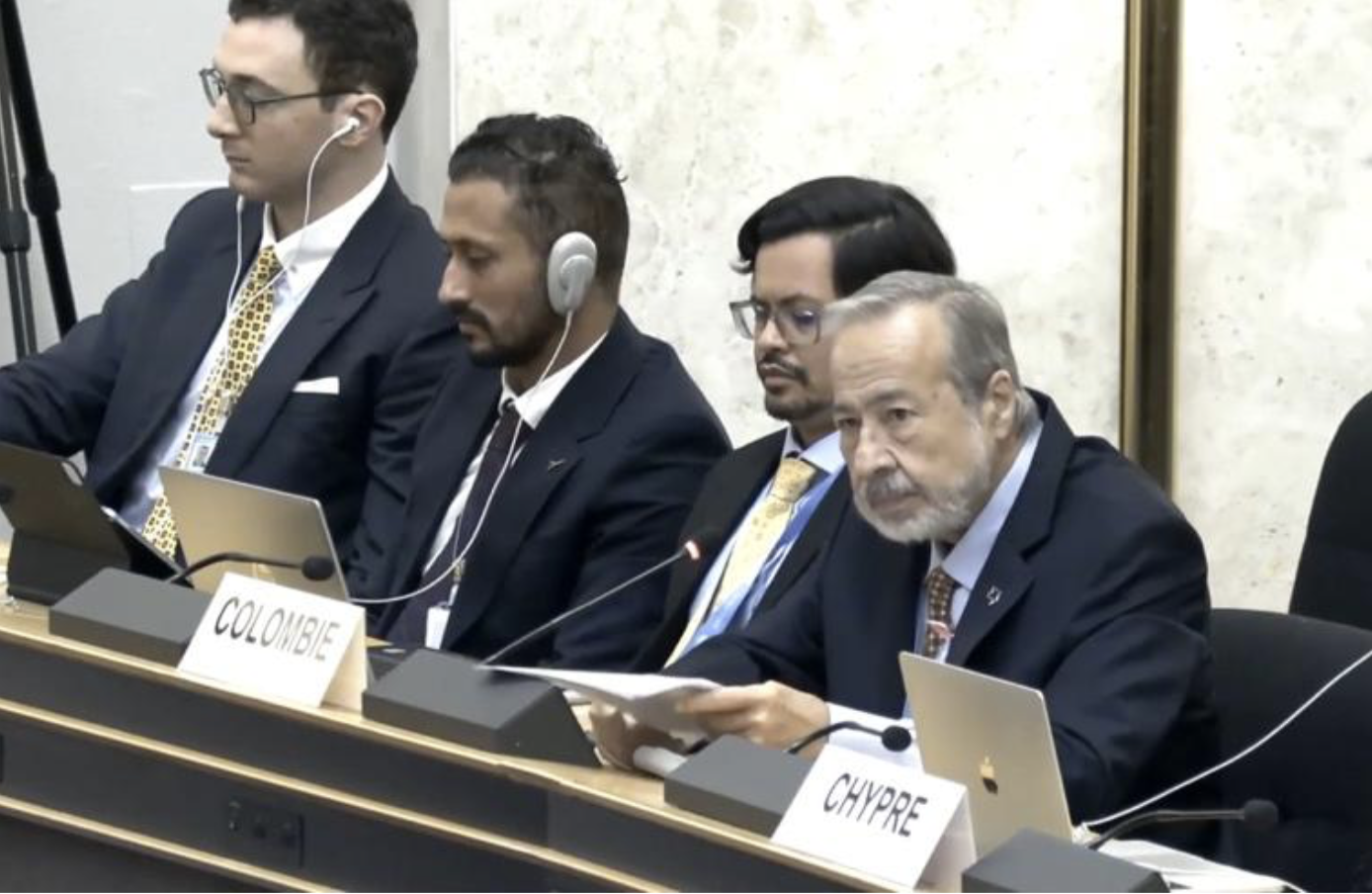
The representative of Colombia emphasised its readiness to cooperate with the UN special procedures and reiterated its commitment to ensuring access to justice, eliminating structural barriers, and guaranteeing accountability for violations affecting people of African descent.
He highlighted the full implementation and deepening of Law 70 of 1993, which recognises the rights of Afro-Colombian communities, including their collective land rights and the right to self-governance in accordance with local customs. He noted that corrective measures are being taken to increase the visibility of African-descendant populations in official data, promote equitable access to employment, and expand educational opportunities, particularly in historically marginalised territories. These initiatives are part of Colombia's broader national policy to eliminate structural inequalities and foster sustainable development across all regions.
Acknowledging historical injustices and systemic marginalisation, the representative recognised the negative impacts of land dispossession, illegal mining, and the internal armed conflict, as well as the unintended consequences of drug policies that have disproportionately affected Afro-descendant communities. He emphasised that addressing these structural challenges is a priority for the government, which is committed to adopting targeted measures to protect the rights of women, youth, community leaders, and other vulnerable groups within these communities.
The representative highlighted Colombia's support for the second International Decade for People of African Descent and expressed readiness to translate the programme of activities into concrete measures that guarantee the rights of Afro-descendant populations. He also called on other States and international organisations to mobilise political will and resources to support these global efforts.
He further noted that the contributions of people of African descent enrich Colombian culture and society. He emphasised that their protection and promotion are essential to building a more equitable, prosperous, and peaceful society. The representative concluded by reaffirming Colombia's commitment to safeguarding human rights, respecting cultural diversity, and eliminating structural barriers, in line with both national law and international obligations.
Response from the National Human Rights Institution: Defensoría del Pueblo
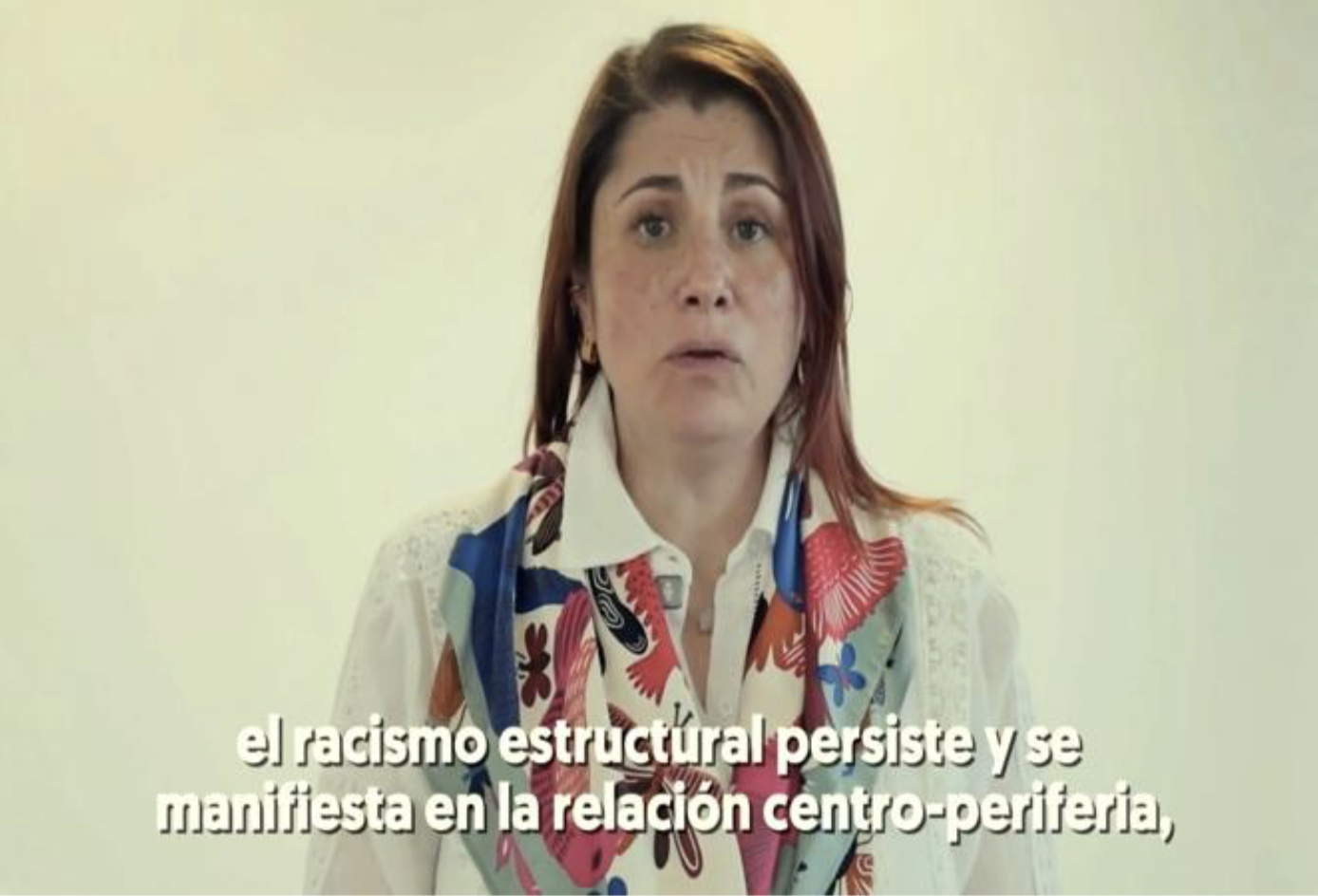
The representative of Colombia’s Ombudsman's Office (Defensoría del Pueblo) emphasised that the report conveys a clear and unequivocal message: structural racism persists in Colombia. This is particularly evident in the disparities between central authorities and peripheral regions, as well as in the marginalisation of Afro-descendant communities.
She highlighted several key challenges, including violence against community leaders, institutional exclusion, and statistical invisibility, which together distort policy-making and access to services. She noted that Colombia is home to the third-largest Afro-descendant population in the world, yet systemic barriers continue to prevent the effective realisation of their rights. She connected these ongoing inequalities to the country's colonial past and the history of slavery, citing enduring social and economic gaps compared to other segments of the population, along with limited access to opportunities in education, employment, and political participation.
She expressed strong support for international frameworks, including the Second International Decade for People of African Descent and the proposed International Declaration on People of African Descent. She urged the government to adopt and implement these instruments formally. Additionally, she also emphasised the importance of the Inter-American Convention against Racism and Racial Discrimination as a vital regional tool to combat racism, racial discrimination, xenophobia, and related forms of intolerance.
In her conclusion, she stressed that joint, decisive action by the government, civil society, and international mechanisms is essential to achieve meaningful progress. She called for sustained efforts to promote inclusive societies, fully implement human rights protections for Afro-descendant populations, and address the structural inequalities that continue to hinder their full participation in Colombian society.
Statements of Countries
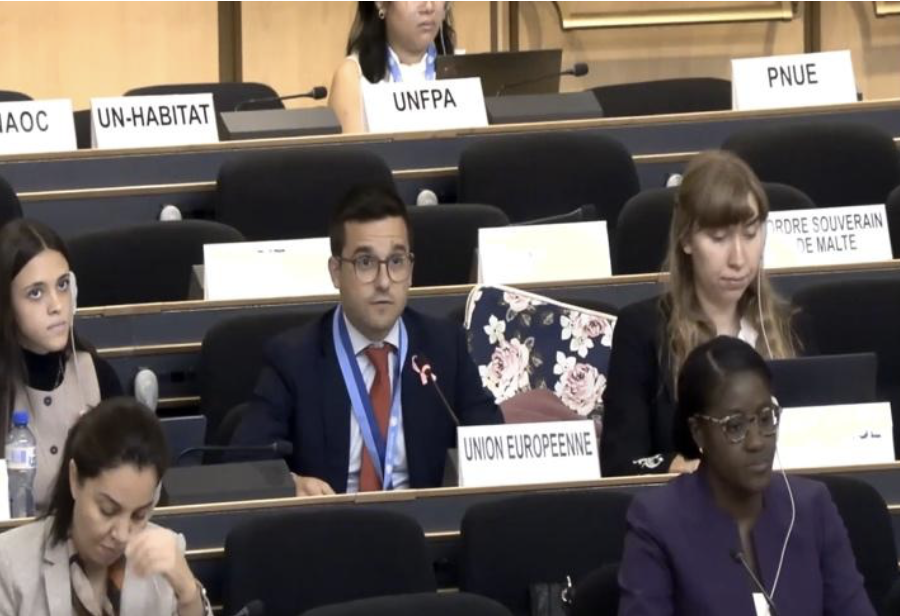
The representative of the European Union (EU) expressed strong support for the Working Group’s report, emphasising the urgent need for a new global consensus on reparations and justice. The representative framed this discussion within the DDPA, recognising it as a foundational framework for accountability, truth, and reparations.
He acknowledged the immense suffering caused by historical and contemporary slavery and the transatlantic slave trade, as well as the lasting impacts of colonialism that continue to create structural inequalities today.
The representative stressed that States must actively address these historical injustices by implementing effective remedies, including measures to dismantle societal structures that perpetuate inequities. Additionally, he highlighted the EU's support for the development goals of African countries, committing nearly 30 billion euros from 2021 to 2027 for sub-Saharan Africa, representing approximately 40% of its total development funding. This financial support was presented as part of broader efforts to strengthen economic resilience and promote equitable development, linking reparatory justice with contemporary development initiatives.
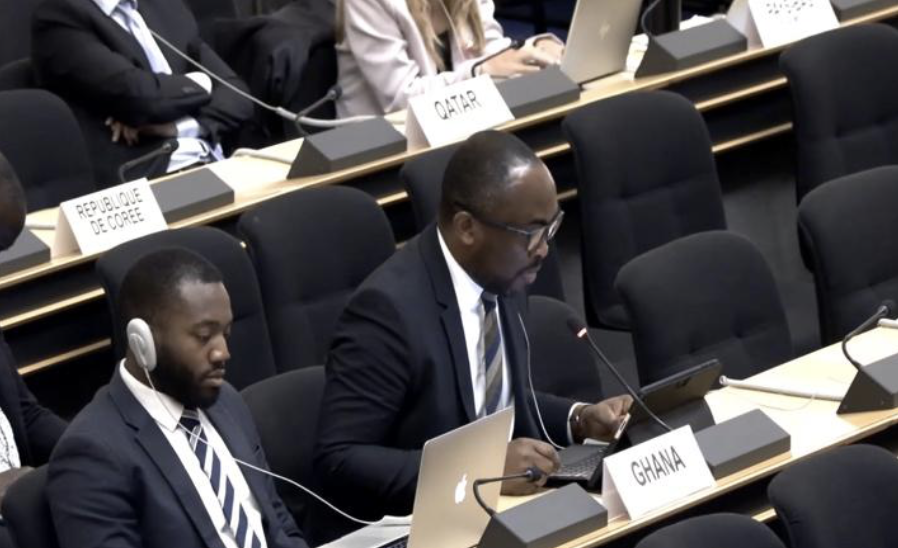
The representative of Ghana, speaking on behalf of the African Group, expressed full support for the Working Group’s report, noting that its conclusions closely align with the DDPA. He reaffirmed that Africans and people of African descent are primary victims of slavery, the transatlantic slave trade, and colonialism, and continue to suffer from the legacies of these historical injustices.
He stated that the African Group endorsed the principle that affected communities should have the authority to submit reparations claims. Additionally, States and institutions that participated in or benefited from these crimes must bear responsibility for addressing them.
He urged States that have not yet acted to adopt a comprehensive approach to reparatory justice. This includes offering formal apologies, engaging in truth-telling processes, and providing diverse forms of reparations. The representative also condemned the resurgence of racism, racial discrimination, Afrophobia, and related intolerances, emphasising the dangers posed by white supremacy, extremist ideologies, and national populist ideologies.
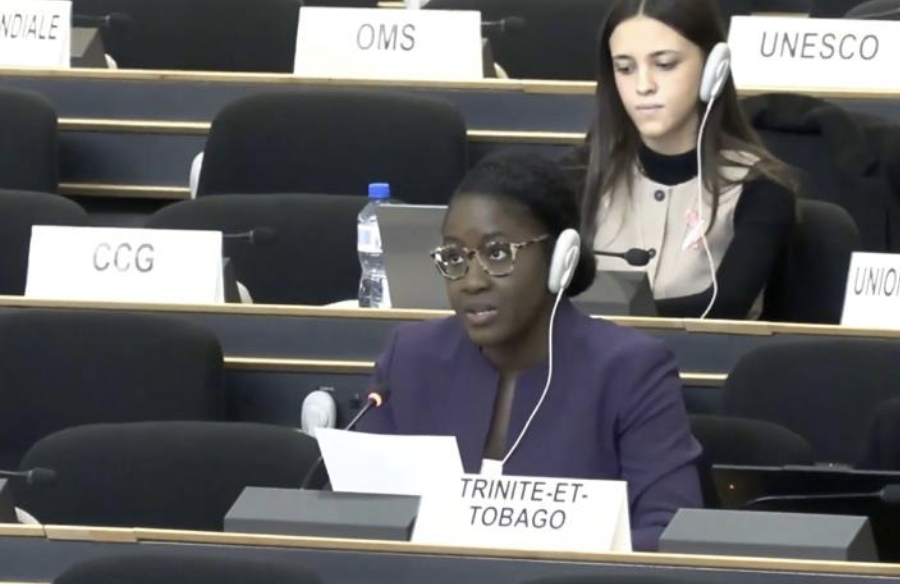
The representative of Trinidad and Tobago, speaking on behalf of the CARICOM Group, emphasised the Working Group's role in advancing reparatory justice for people of African descent. The representative highlighted that the Second International Decade for People of African Descent should focus on concrete, robust actions that include not only traditional reparations but also climate and cultural justice. The representative endorsed the revised CARICOM 10-Point Plan for Reparatory Justice as a practical framework to guide efforts in these areas.
The representative stressed the importance of Haiti as a central focus in discussions about reparatory justice, particularly in light of the ongoing humanitarian challenges. She emphasised the need to anchor reparatory justice within international human rights law and encouraged strengthened collaboration between the Working Group and other UN anti-racism mechanisms. She further reaffirmed CARICOM Heads of Government’s high-level advocacy and continued commitment to advancing reparatory justice, noting recent engagement during the UN General Assembly session and the Second Africa-CARICOM Summit in Addis Ababa, Ethiopia.
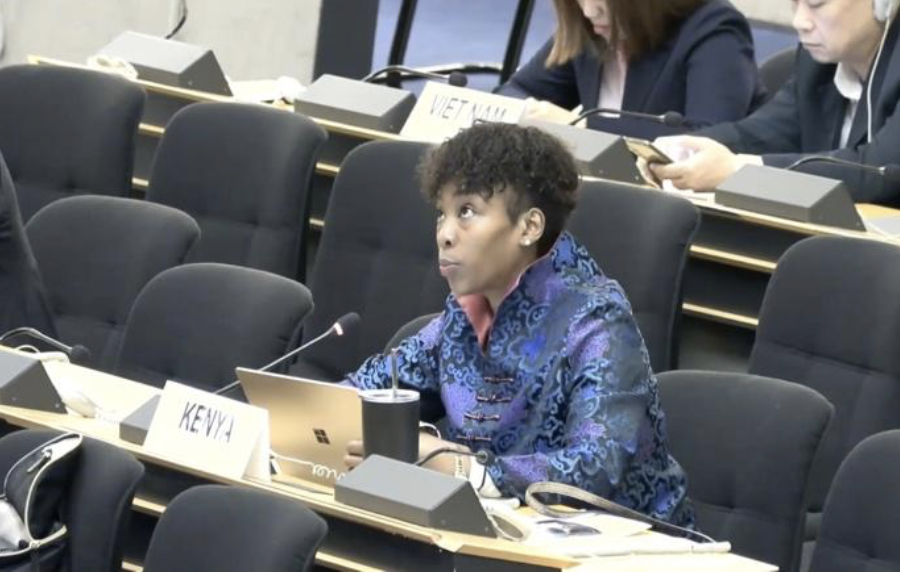
The representative of Kenya emphasised that enslavement, the transatlantic slave trade, and colonialism are crimes against humanity that have left lasting legacies of systemic racism and exclusion. The representative underscored the importance of the Working Group's work in defining principles, legal bases, and pathways for reparations, which lay the groundwork for meaningful redress, restoration, and reconciliation.
Additionally, she welcomed the African Union's 2025 theme, "Justice for Africans and People of African Descent through Reparations", connecting it to the broader vision of collective African leadership in addressing historical injustices. She stressed that reparations are not merely about financial compensation; they represent a transformative process that includes restitution, rehabilitation, symbolic measures, and guarantees of non-repetition. She reinforced Kenya's commitment to promoting reparatory justice within the Human Rights Council and on an international scale, to dismantle structural inequalities and foster dignity, equity, and healing for Africans and the global African diaspora.
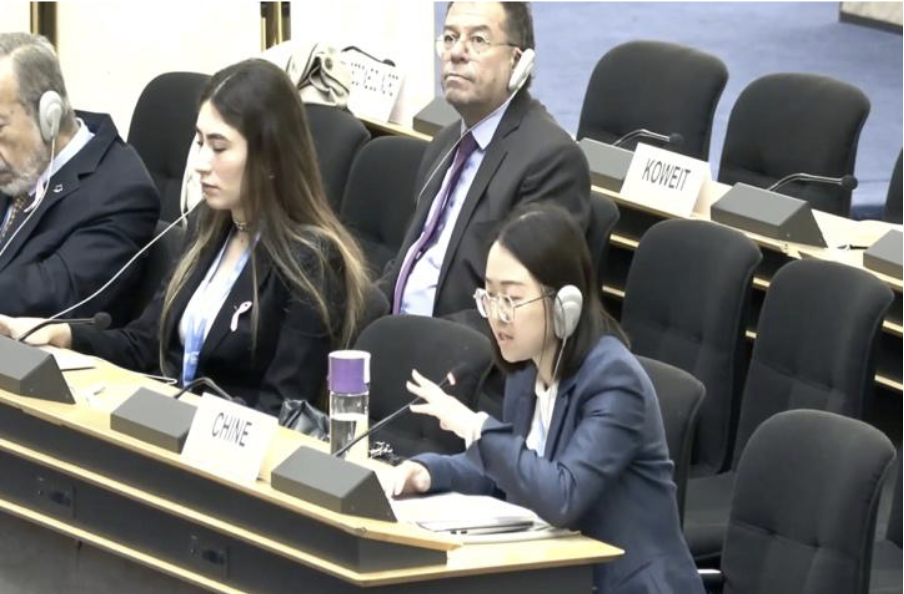
The representative of China highlighted the historical exploitation of African, Asian, and Latin American peoples by Western colonial powers, noting the extraction of wealth and the disruption of their social, economic, and political development. The representative emphasised that the colonial mindset and hegemonic practices continue today, contributing to ongoing systemic racism and discrimination against Africans and people of African descent.
To address these injustices, the representative called on Western countries to take responsibility for historical wrongs and fulfil their obligations regarding reparations. She stressed the importance of concrete actions, including support for the industrialisation and development of affected countries, as part of a broader commitment to redressing historical imbalances. She further stated that China is committed to collaborating with all stakeholders through President Xi Jinping’s Global Governance Initiative to promote a fairer, more equitable global governance system, ensuring that all people can benefit from development and economic progress.
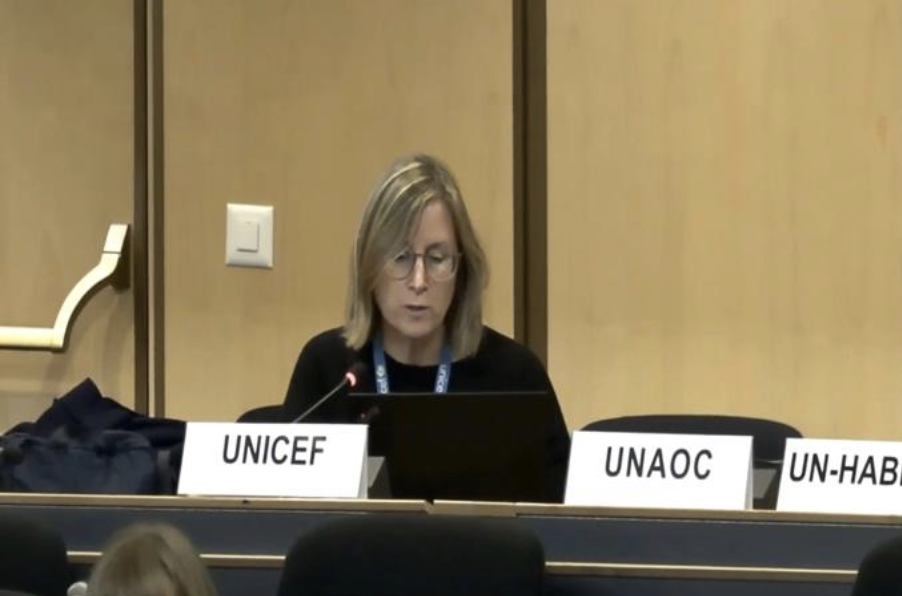
Speaking on behalf of UNICEF, the representative expressed support for comprehensive reparatory justice for violations affecting Africans and people of African descent, particularly focusing on children. The representative emphasised that legacies of enslavement and colonialism continue to impact children's lives. Children face systemic racism, racial profiling, unequal access to justice and social services, excessive use of force, and overrepresentation in the criminal justice system.
She highlighted the necessity for child-sensitive reparatory justice processes that are grounded in equality and non-discrimination, and are accessible through child-friendly language and materials. She called on states to fully comply with their international human rights obligations, ensuring that reparatory justice aligns with the Convention on the Rights of the Child. The representative also offered UNICEF's support in these efforts.
Speakers representing national human rights institutions and non-government organisations (NGOs)
The representatives underscored that structural racism, colonial legacies, and historical injustices continue to impact people of African descent worldwide. These issues manifest in systemic exclusion, economic marginalisation, and limited access to education, healthcare, and justice. Several speakers emphasised the urgent need for reparatory justice, which includes compensation, land restitution, and measures to prevent recurrence. They highlighted the importance of ensuring meaningful participation from affected communities, especially women and youth. They noted that mere recognition of these issues is insufficient; concrete, enforceable actions must be taken at both national and international levels, including dedicated mechanisms for monitoring, implementation, and accountability.
Specific concerns were raised regarding different countries and regions. In Colombia, representatives highlighted ongoing displacement, paramilitary violence, land dispossession, and underrepresentation in judicial and political systems. They urged the government to ensure humanitarian access, enforce anti-racism laws, and guarantee free, prior, and informed consent for Afro-descendant communities.
In Brazil, reports indicated systematic racialised violence and discrimination affecting Black youth and women, including arbitrary arrests, excessive use of force, and high incarceration rates. Other representatives highlighted abuses of workers' rights in the UAE under restrictive labour systems, and the situation in Sudan, where ethnic-based discrimination, denial of aid, and targeted attacks were causing widespread humanitarian crises.
Across all statements, national human rights institutions and NGOs consistently called for international cooperation, strengthened legal frameworks, and the active engagement of civil society to address structural inequalities and protect the rights of people of African descent. They urged the Human Rights Council and Member States to implement systematic, transparent, and rights-based measures that integrate historical accountability, socio-economic redress, and protection from ongoing discrimination.
A representative from GICJ presented a joint statement with the International Organisation for the Elimination of All Forms of Racial Discrimination (EAFORD); she emphasised how legacies of colonialism and the transatlantic slave trade continue to manifest as systemic racism, economic marginalisation, environmental injustice, and Afrophobia.
She emphasised that reparatory justice is both a moral and legal obligation. She called for comprehensive measures that include compensation, restitution of lands and cultural heritage, public acknowledgement, and guarantees of non-repetition.
She urged the UN and Member States to recognise reparations as an international law standard formally and to establish inclusive, transparent mechanisms for their implementation, ensuring meaningful participation of people of African descent, particularly women and youth.
Closing Remarks by the Chair of the Working Group of Experts on People of African Descent
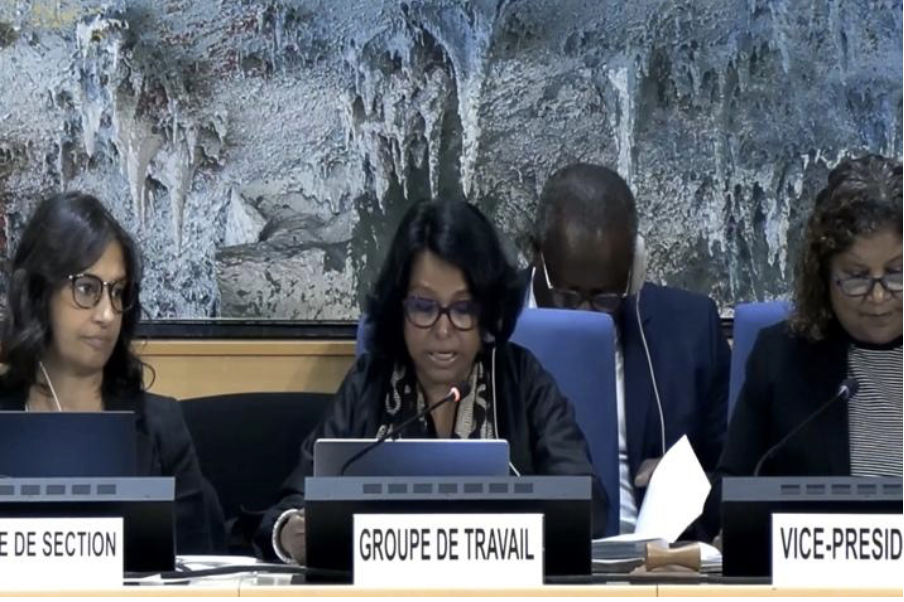
On behalf of the Working Group on People of African Descent, the Chair expressed sincere gratitude to Member States and civil society organisations for their active engagement and constructive contributions throughout the interactive dialogue. She acknowledged the value of the interventions and recommendations shared, which collectively reinforce the global commitment to advancing racial justice, equality, and inclusion for people of African descent.
In response to questions raised, Ms D'Costa reiterated the Working Group's call to move beyond recognition towards accountability and redress. She emphasised that this transition requires the dismantling of structural barriers at the local, national, and international levels. The barriers, she explained, perpetuate systemic exclusion and hinder the full participation of people of African descent in all spheres of public life.
Ms D'Costa underscored the importance of integrating the history, culture, and contributions of people of African descent into national education systems, public narratives, and policy frameworks. Doing so, she noted, is crucial not only for correcting historical omissions but also for shaping equitable societies grounded in truth, justice, and recognition.
She also expressed appreciation to the Colombian delegation for its detailed intervention. She reaffirmed one of the Working Group's central findings from its country visit: that statistical invisibility remains a persistent challenge. Many state institutions fail to adequately collect and disaggregate data on Afro-descendant populations, resulting in policies that do not fully reflect their lived realities or address their specific needs.
Ms D'Costa called upon all States to fulfil their commitments under the three pillars of the Second International Decade for People of African Descent: Recognition, Justice, and Development. She stressed that achieving these objectives requires sustained political will, inclusive governance, and collaborative partnerships between governments, national human rights institutions, and civil society. Only through collective action, she concluded, can the international community advance the transformative agenda of equality, representation, and justice for people of African descent worldwide.
Position of Geneva International Centre for Justice (GICJ)
Geneva International Centre for Justice (GICJ) welcomes the comprehensive presentation by Ms Bina D'Costa, Chair of the Working Group of Experts on People of African Descent. We acknowledge the dual focus on both thematic reparatory justice and the country-specific situation in Colombia. GICJ notes that the 2025 thematic report provides a rigorous framework for addressing the historical and structural legacies of slavery, colonialism, and the transatlantic slave trade. It highlights the importance of reparatory justice as a multidimensional process that includes legal, economic, social, cultural, and symbolic aspects.
GICJ recognises the emphasis placed on inclusive and gender-sensitive approaches, as well as the active participation of diverse communities of African descent, including women and youths. These measures are vital to ensuring that reparatory processes are equitable and reflect the lived experiences of those most affected by historical injustices. The inclusion of Haiti as a case study further underscores the enduring economic and moral consequences of historical exploitation and the urgent need for international acknowledgement and restitution.
Regarding the country visit to Colombia, GICJ commends the identification of both commendable progress and persistent gaps. While legislative and institutional mechanisms such as Law 70 of 1993, the ethnic chapter of the Peace Agreement, and the National Intersectoral Commission for Historical Reparation represent significant steps forward, systemic challenges remain in infrastructure, education, economic opportunities, political participation, and territorial autonomy for Afro-descendant communities. These findings emphasise the gap between legal recognition and practical implementation, reinforcing the need for sustained political will, resource allocation, and structural reforms.
GICJ encourages States to adopt the recommendations of the Working Group, including fully operationalising relevant laws, empowering local community governance, accurately representing the African-descendant populations through statistics, and implementing targeted measures to address disparities in education, employment, and access to justice. Furthermore, GICJ stresses the importance of recognising reparatory justice as an international legal norm and of establishing mechanisms at the United Nations level to coordinate, monitor, and support the implementation of reparatory measures globally.
Finally, GICJ emphasises that reparatory justice must be understood as both a historical redress and a forward-looking strategy to dismantle structural racism and inequality. We support the Working Group's call for truth, accountability, and institutional reform as integral components of a comprehensive reparatory justice framework. We urge States, international organisations, and civil society to take immediate and sustained action in line with these principles.




